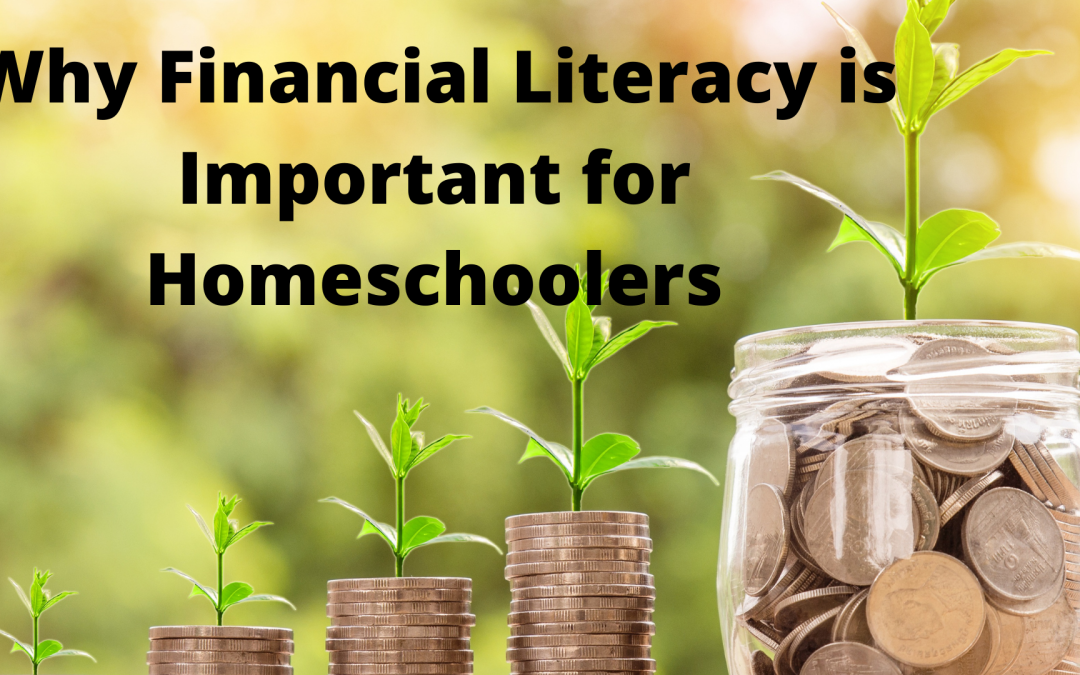In 2019, the National Foundation for Credit Counseling (NFCC) found that 2 in 5 adults have a budget and stick to it to keep track of their spending. Another finding from the same survey showed that less than 1 in 5 adults feel confident in their current saving habits. This widespread lack of financial discipline can be partially blamed on public school systems that don’t have great financial literacy programs. Luckily, more schools are moving towards providing better education, but it is still not where it needs to be. Parents who homeschool are in a unique situation because they have the ability to choose what curriculum their children learn from and which life skills to encourage early on. Here are a few reasons why financial literacy is important for homeschoolers:
It Teaches Discipline
Discipline is commonly taught to young children through their involvement in athletics or learning an instrument, however, it is essential for children to learn financial discipline as well. The statistics above show that many adults don’t have the kind of discipline necessary to set themselves up for financial security. If young people never learn these things it will make finances a constant struggle for the rest of their lives, especially during retirement. Compound interest is an extremely powerful tool for retirement that many fail to utilize. By the time retirement nears, it’s too late to take advantage of the past 30-40 years of compounding interest. Having the discipline to put money towards retirement and other investment goals will make later decisions in life much less stressful.
It Encourages Goal Setting
One of the biggest hopes a parent can have for their children is to be capable and independent when they are no longer there to support them. Giving them the knowledge and skillsets to handle their own finances early on will help them see the value of independence and can help them pursue it in other areas of their lives. It will show them that they can take the money that they do have and use it for things they care about. An early education can help kids learn goal-setting and patience. Saving those few dollars to finally be able to buy a toy or a game they wanted will show them that it is worthwhile to save their money and hold out on spending to get what they want in the future. The concept of delayed gratification has shown to be beneficial in the famous 1970’s marshmallow experiment with kids. For example, the kids who delayed gratification did better in school than the kids who didn’t and had fewer behavioral problems.
It Eases the Transition Into Adulthood
Transitioning from homeschool life to a life on your own (or living away at college) can be difficult for some. The many distractions and responsibilities may seem overwhelming, so having a good understanding of finances before leaving the nest will help alleviate some of this transitional stress. Young kids might not have lofty financial goals, but for the young adult on his own, having the financial knowledge to be able to answer questions like, “how much house can I afford?” or “how do I save for retirement?” will make big financial obstacles seem much less daunting.
Another way this can set kids up for success is by teaching them the importance of things like a salary, interest rates, budgeting and investing. When they grow up and get a job, they’ll be much more aware of their salary and look for ways to get raises. Having knowledge about interest rates will help with things like buying their first house and paying off student loans. In addition to consistently putting money towards a retirement plan, investing can provide further security, whether that be through the stock market, real estate, or other investment vehicles.
It Combats a Lack of Education
It’s unfortunate that many public school systems do not offer financial education, and if they do, it’s not always the most informative. Pursuing life skills like financial literacy at an early age will set children up for future success. Homeschool families have the opportunity to break the status quo and shape a generation of kids that will grow into financially responsible adults. If you’re a new parent and are on the fence about homeschooling, there are a variety of resources to inform you on the pros and cons.

